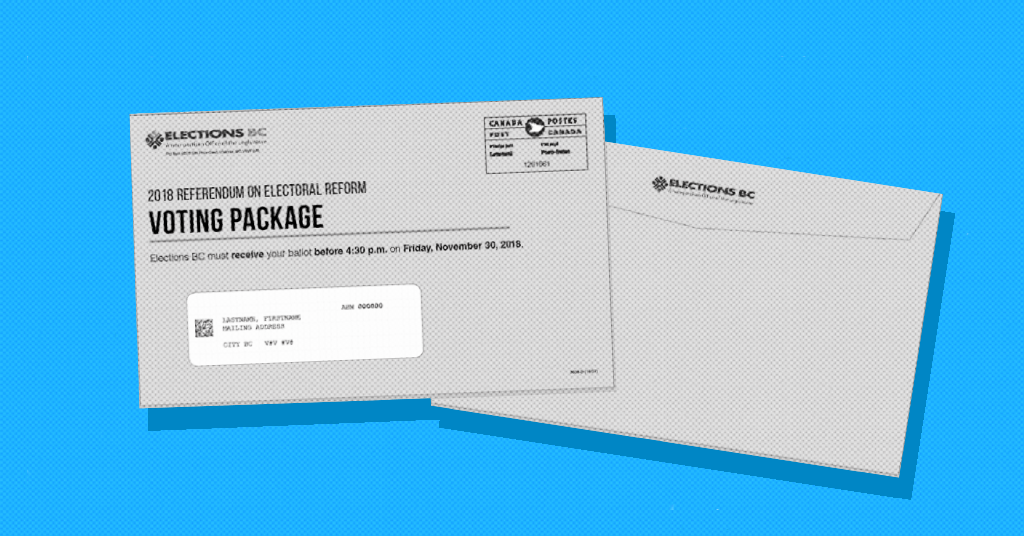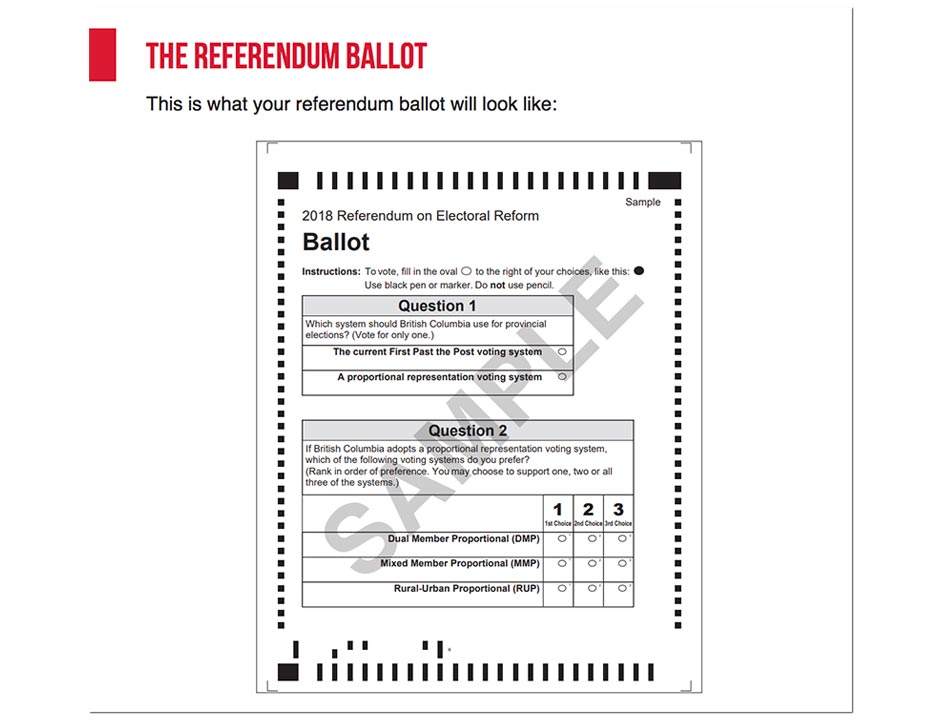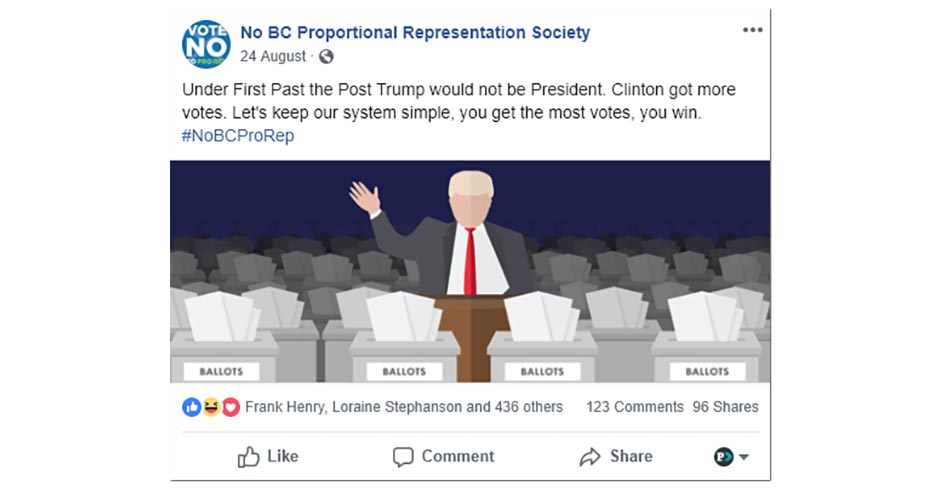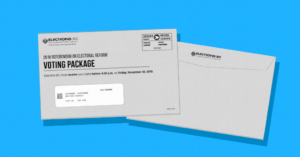
British Columbia’s Campaign To Stop Electoral Reform is Now in Full-Blown Fear-Mongering Mode
Top anti-reform campaigners are spreading misinformation and confusion trying to stop electoral reform
Don’t listen to the anti-electoral reform fear-mongers.
Study after study shows proportional representation strengthens democracy, promotes diversity and curbs inequality – plus it’s good for the economy too.
Yet anti-electoral reformers have spent a lot of time and energy cooking up some kooky theories about what would happen if British Columbia gets with the times and joins many countries throughout the industrialized world by dropping its Victorian-era first-past-the-post system.
This fall, voters in BC will cast their votes to decide whether or not the province should stick with the outdated first-past-the-post system, or switch to a proportional representation system that studies suggest would lead to higher voter turnout, better economic performance, and more inclusivity in government.
However, BC’s wealthy elites and right-wing power-brokers have been mustering every resource at their disposal to try to spread confusion and misinformation about proportional voting systems.
Here are a few of the most outlandish lines coming from the ‘No’ side:
Rich Coleman: the ballots are too confusing
Even though Elections BC issued a report that concluded the referendum questions are “simple and clear enough for voters to understand,” electoral reform opponents keep pushing the idea that voters can’t be trusted to make informed opinions.
BC Liberal MLA Rich Coleman, former Deputy Premier under Christy Clark, even tried to float the idea that Elections BC is trying to confuse voters by showing an “X on the ballot” even though “voters must colour in the dot on the actual ballot.”
Psst, don’t tell Coleman – he’s so focused on tarring-and-feathering electoral reform, he doesn’t realize the “X” appears to be the button to close a PDF on his phone.
The sample ballot for the referendum on electoral reform. Question 2 is a set up with no explanation. Not lost on me that Elections BC’s material shows an X on the ballot in the mailbox, but voters must colour in the dot on the actual ballot. Confused?? pic.twitter.com/o74b2LZ0Mm
— Rich Coleman (@colemancountry) September 21, 2018
Notably, the “X” in the top-left corner of the image tweeted by Coleman is absent in an identical image of the referendum ballot that appears in a voters guide recently released by Elections BC:

Elections BC
Suzanne Anton: electoral reform could lead to a dictatorship in BC
Suzanne Anton, one of the directors of the Vote No to Proportional Representation Society, ludicrously suggested proportional representation systems allow “dictators (to) rise to power.”
Anton’s claim is strange, given that democratic countries like Norway, New Zealand, and Switzerland have all used proportional systems for decades, but do not “cry out” for authoritarian leadership.
In addition, a study by world-renowned political scientist Arend Lijphart found that countries with proportional voting systems have “kinder, gentler democracies” than countries using first-past-the-post, or “majoritarian,” systems.
When small parties can’t agree as to a coalition govt, people start to cry out for leadership. Dictators rise to power. This is not, proportional representation friends, called fear mongering. It’s called history, & it’s important to remember it. #bcpoli @NoBCProRep @vergekent https://t.co/3emyjx1697
— Suzanne Anton (@SuzanneAnton) September 9, 2018
Bill Tieleman: PR will lead to Doug Ford (who was elected under FPTP)
Poor Bill Tieleman – his head must be spinning realizing he’s backing the wrong side in the electoral reform referendum.
How else does one explain the dizzying logic behind the No side co-director’s warning that proportional representation could open the door to someone like Doug Ford becoming the Premier of BC?
As Twitter users quickly reminded Tieleman, Ford was actually elected under the system he is backing – first-past-the-post. In fact, seizing 100% of the power with only 40% of the vote as Ford did is only possible thanks to first-past-the-post.
Under a proportional system, Ford would have been denied a majority and would have stopped Ford from trying to unilaterally override the constitution.
Glad you brought up Doug Ford. He was elected under #FPTP with 40% of the vote & now he has all the power and is wreaking havoc on our Constitution & #Democracy with no #accountability. The great thing about #pr4bc is politicians are more accountable. #bcpoli
— Jessica Van der Veen, BA, MPA (@JessicaVdV) September 13, 2018
No side campaign: Donald Trump would not be president under FPTP
In an equally ridiculous Facebook post, the Vote No to Proportional Representation Society recently claimed that US President Donald Trump ‘would not be president’ under first-past-the-post.
Except that’s not true either.
Trump was elected under the US electoral college system, a majoritarian “winner takes all” system that is a variation of BC’s first-past-the-post system. The American presidency chooses the winning candidate by the number of electoral college votes they receive rather than the popular vote.
This system allowed Trump to win the presidency despite receiving 2.8 million fewer votes than Hillary Clinton. Under a proportional voting system, Clinton would have been elected president.

What do proportional representation systems actually look like?
Here’s a quick rundown:
Higher Satisfaction with democratic institutions: according to an analysis by researchers at Rice University, countries with “more consensual” voting systems, like proportional representation, have a higher percentage of voter satisfaction. The study found even voters whose preferred party was not in power reported a higher level of satisfaction with their government than voters in majoritarian countries.
Better Economic Performance: a 2011 University of Oslo study found proportional and semi-proportional systems produced an “astonishingly robust” and “quite substantial” increase in economic growth.
More Women in Government: There’s a plethora of evidence indicating proportional representation systems elect more women into government. To name just one study, Arend Lijphart found the share of women in parliamentary bodies was 8% higher in proportional representation countries than majoritarian countries.
Reduced Levels of Income Inequality: Arend Lijphart also found countries with proportional voting systems have considerably lower levels of income inequality than countries with majoritarian systems. In 1998, a study out of the University of Georgia found people are more likely to elect politicians that improve their living standards under proportional representation because proportional voting systems make democratic institutions more accessible:
“The more widespread the access to political institutions, and the more representative the political system, the more citizens will take part in the political process to change it in their favour which will manifest itself, among other things, in lower income inequality.”
Our journalism is powered by readers like you.
We’re an award-winning non-profit news organization that covers topics like social and economic inequality, big business and labour, and right-wing extremism.
Help us build so we can bring to light stories that don’t get the attention they deserve from Canada’s big corporate media outlets.
Donate



